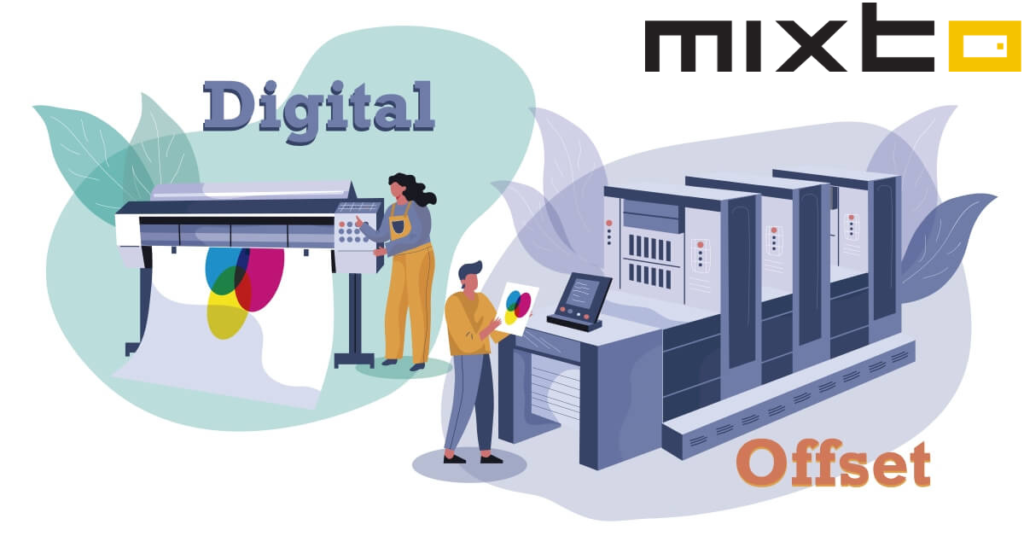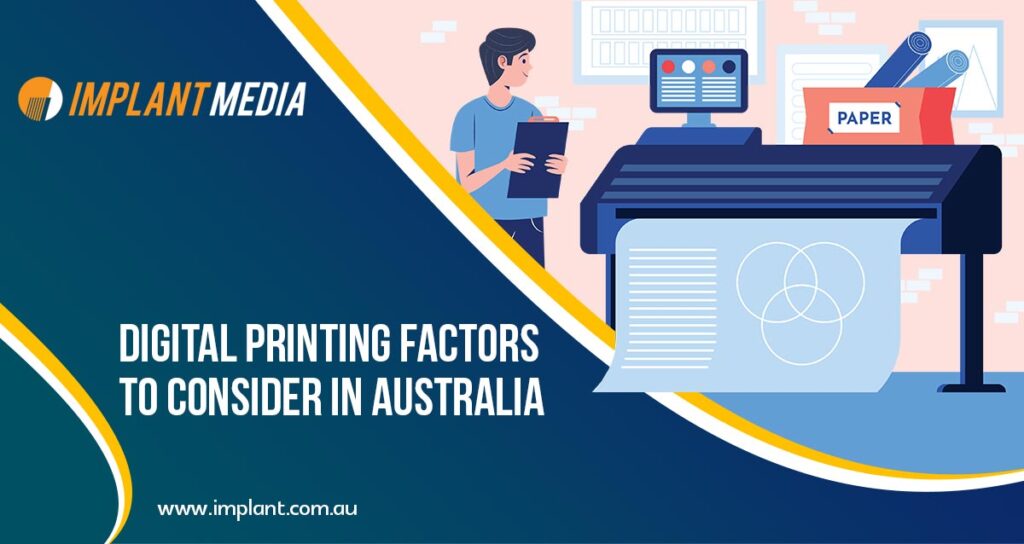Not known Incorrect Statements About 24??media
Not known Incorrect Statements About 24??media
Blog Article
24??media Can Be Fun For Anyone
Table of ContentsSee This Report on 24??mediaThe smart Trick of 24??media That Nobody is DiscussingThe smart Trick of 24??media That Nobody is DiscussingOur 24??media PDFsNot known Facts About 24??media
Advancements in print technology are transforming the communications playing area when it involves top quality, cost and innovative capabilities. Balanced out printing and electronic printing are the major processes through which print tasks are taken on both using four-color printing approaches. Each choice has its benefits, providing various methods to meet the demands of diverse manufacturing tasks.
Commonly, this has been one of the most regular method for precisely preserving shade suits, making it perfect for print runs that just require fixed printing such as pre-printed forms, brochures, leaflets, business cards, and bulk postcard mailings. However, due to the static nature of litho printing, it is not perfect for variable print pieces that will be sent by mail to private recipients such as statements, letters, and individualized postcards.
Some Ideas on 24??media You Need To Know
The most recent innovations in print innovation are helping to bring most of balanced out's advantages into the electronic printing globe genuinely transforming the face of modern printing! There are some crucial distinctions in between Offset Printing and Digital Printing (Stickers). This overview reveals the benefits and drawbacks of each printing method. There is an obvious and expanding number of benefits to using the electronic print process.
Today's electronic print equipment is amongst the most innovative on the marketplace. Right here are some of the most significant benefits of using electronic printing: dominate the electronic print room, with full-color printing finished in one process and perfectly published directly from a print data. Without a lengthy set-up procedure, the calibration time of a specific job is reduced, adding to quicker print time and overall distribution.
The inkjet printing procedure has helped to revolutionize the market along with the top quality and rate of the output. The most up to date inkjet innovation can print on typical offset supplies with plain, silk, and glossy coatings. High-grade electronic print combined with software-managed color management Check Out Your URL methods includes optimum value to publish pieces and makes production processes extra trustworthy than countered.
The Buzz on 24??media
(https://form.typeform.com/to/Ymt8DrgT)
Exact amounts of ink and toner are utilized to avoid waste. Green and naturally degradable inks and printer toners are also readily available for even more sustainable printing. Digital print likewise removes the requirement to clean plates or coverings with hazardous chemicals at the end of the printing process. As the high quality of electronic print solutions increases, the benefits come to be significantly obvious and helpful.
Variable data helps companies reach their specific consumers and audience with uniquely-created and individualized material. As innovation enhances, the quality of digital printing has become second-to-none, with higher information, shade suit capabilities and overall precision. Without the demand to clean plates or use excess ink, digital printing is likewise much less inefficient and typically more environmentally friendly.
("flexo"), involve numerous make-ready steps to move an initial picture to a substratum.
The 24??media Diaries
Digital printing, with less moving items, is much more nimble than balanced out in this respect.
Lowered set-up time saves money on the front end. And considering that these are not enormous mass orders, smaller sized companies can afford to print without having to satisfy the greater and extra costly print limits of typical printing.
Make sure you collaborate with a printing and product packaging partner who has the right certifications. While eleventh-hour printing and personalization are a huge advantage, electronic may not always be the finest method for you. Counter printing has the benefit of cost-effectiveness with large print runs, specifically those with advanced decorative impacts and specialized coverings.

Some Known Facts About 24??media.
Lithographic presses make use of two print platesa positive and a negativeto transfer high-quality color graphics onto an appropriate substrate. The favorable plate, with its smooth surface area, attracts oil-based inks and wards off water. In comparison, the adverse plate, with its rough texture, soaks up water and wards off oil. Rubber rollers are after that used to transfer the image from home plate to the corrugated surface.
Corrugated paper can often show to be a difficult surface area to publish on, yet Litho prints to a different surface area and is after that laminated flooring to it, making it simple to print top notch photos. It can be very consistent, even for futures. Actually, the a lot more you publish, the less costly the prices come to be for Litho.
What Litho doesn't give you is exactly what Digital does, personalization. Costly established up Longer turn-around No Variable Information Printing Smaller sized color range, colors can be much less intense Digital printing is the process of printing electronic pictures straight onto the corrugated substratum using a single-pass, direct-to-corrugate strategy.
Report this page